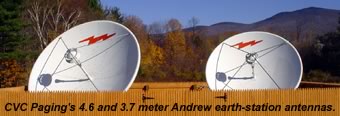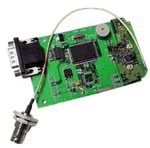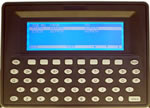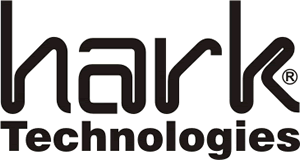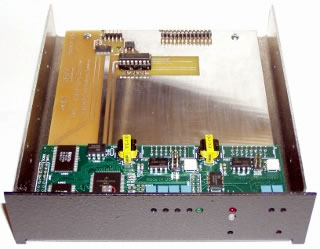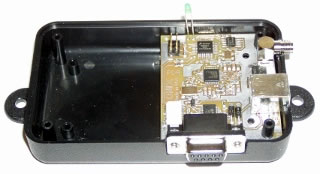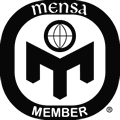
BloostonLaw Telecom Update Published by the Law Offices of Blooston, Mordkofsky, Dickens, Duffy & Prendergast, LLP [Portions reproduced here with the firm's permission.] www.bloostonlaw.com |
| Vol. 14, No. 19 | May 11, 2011 |

FCC Sets Agenda
For May 12 Open Meeting According to its “Sunshine” agenda, the FCC will consider the following three items at its scheduled May 12 open meeting; - A Notice of Proposed Rulemaking (NPRM) to extend the outage reporting requirements in Part 4 of the rules to interconnected VoIP and broadband service providers to promote the resiliency of America’s 9-1-1 system and the country’s critical communications infrastructure.
- An NPRM to remove outdated regulations governing the exchange of telephone traffic between U.S. and foreign carriers that are no longer necessary to protect consumers and competition, while strengthening protections against anticompetitive practices by foreign carriers.
- As part of its Data Innovation Initiative, a First Report and Order and Further Notice of Proposed Rulemaking (FNPRM) to eliminate unnecessary reporting requirements regarding international telephone service, while streamlining and modernizing remaining international data reporting to ensure continued relevance in light of changing markets.
BloostonLaw contacts: Hal Mordkofsky, Ben Dickens, Gerry Duffy, and John Prendergast. |

INSIDE THIS ISSUE - FCC extends separations freeze until June 30, 2012.
- FCC seeks comment on NECA’s TRS formulas.
- FCC approves NECA’s average schedule formula.
- FCC seeks comment on signal booster NPRM.
- FCC extends certain Rural Health Care Pilot Program deadlines.
|
FCC Extends Separations Freeze Until June 30, 2012 The FCC has extended until June 30, 2012, the existing freeze of its rules regarding jurisdictional separations. Specifically, the Commission issued a Report and Order (R&O) extending the existing freeze of Part 36 category relationships and jurisdictional cost allocation factors (BloostonLaw Telecom Update, March 16). The FCC noted that telephone companies typically use the same network facilities to provide both intrastate and interstate services. Jurisdictional separations is a system of rules for allocating common network costs into interstate and intrastate jurisdictions. The allocation of common costs can affect regulated interstate and intrastate rates. The Commission froze aspects of the jurisdictional separations rules in 2001 and has periodically extended the freeze since then. The Federal-State Joint Board on Separations has been working on a recommendation for reform of the jurisdictional separations process. However, the FCC said, the issues at stake are quite complex, and they will be affected by—and may affect—other reform efforts, such as universal service and intercarrier compensation, that are underway. Thus, the FCC said that extending the freeze will provide stability for carriers that must comply with the Commission’s separations rules while the Joint Board completes its analysis of, and recommendations for, interim and comprehensive reform of the jurisdictional separations process. Specifically, the FCC said that price cap carriers will use the same relationships between categories of investment and expenses within Part 32 accounts and the same jurisdictional allocation factors that have been in place since the inception of the current freeze on July 1, 2001. Additionally, rate-of-return carriers will use the same frozen jurisdictional allocation factors, and will use the same frozen category relationships if they had opted previously to freeze those. The FCC noted that the Joint Board supports this one-year extension of the freeze, and the majority of commenters in this CC Docket No. 80-286 proceeding support extension of the freeze for one year or longer. The FCC said that eliminating the freeze would create undue instability and administrative burdens while the Commission is considering comprehensive separations reform. The Commission noted that if it allowed the earlier separations rules to return to force, carriers would be required to reinstitute their separations processes even though many carriers no longer have the necessary employees and systems in place to comply with the old jurisdictional separations process and likely would have to hire or reassign and train employees and redevelop systems for collecting and analyzing the data necessary to perform separations. Some commenters recommended that the Commission consider extending the freeze for longer than one year, maintain the freeze until the Commission has completed universal service and intercarrier compensation reform, allow modification of frozen category relationships for rate-of-return carriers, or make other modifications to the separations process. The FCC said that each of these issues falls within the referral to the Joint Board in the 2009 Separations Freeze Extension Order and may be addressed in the Joint Board’s recommended decision. The Commission therefore declined to address them in this order. BloostonLaw contacts: Ben Dickens, Gerry Duffy, and Mary Sisak.
FCC Seeks Comment On NECA’s TRS Formulas The FCC has asked for comment on the National Exchange Carrier Association’s (NECA’s) formulas for the Interstate Telecommunications Relay Services (TRS) Fund submitted for the period July 1, 2011, through June 30, 2012 for all forms of TRS with the exception of video relay service (VRS). NECA also submitted the Fund size estimate for the same period. NECA proposes new per minute compensation rates for all forms of TRS except VRS based on the rate calculation methodologies established in the 2007 TRS Rate Methodology Order as follows: $1.8502 for interstate traditional TRS; $1.8502 for interstate Speech-to-Speech (STS); $1.7396 for interstate captioned telephone service (CTS) and interstate and intrastate Internet Protocol (IP) captioned telephone service (IP CTS); and $1.2920 for interstate and intrastate IP Relay. Although NECA was not required to file proposed VRS rates and revenue requirements, the Fund must include an estimate of VRS revenue requirements to ensure that the Fund administrator collects sufficient revenues to cover all TRS for the 2011-12 Fund year. NECA therefore used the following 2010-11 Fund year VRS rates for the 2011-12 Fund size estimate: $6.2390 for the first 50,000 monthly minutes, $6.2335 for monthly minutes between 50,001 and 500,000, and $5.0668 for minutes above 500,000. Based on the new proposed rates for TRS, STS, CTS, IP CTS, and IP Relay and the current VRS rates, and projected Fund administration expenses, NECA proposes a carrier contribution factor of 0.01056, and a funding requirement of $739.3 million. The FCC seeks comment on NECA’s proposed compensation rates for TRS, STS, CTS, IP CTS, and IP Relay, as well as the proposed carrier contribution factor and funding requirement for the period of July 1, 2011, through June 30, 2012. Comments in this WC Docket Nos. 05-337 and 06-122 proceeding are due May 18, and reply comments are due May 25. BloostonLaw contacts: Ben Dickens, Gerry Duffy, and Mary Sisak. NYC Unveils Public Safety System For Mobile Alerts The FCC, New York City Mayor Michael Bloomberg, and other officials have announced PLAN—the Personal Localized Alerting Network. PLAN is a free service that will allow customers with an enabled mobile device to receive geographically-targeted, text-like messages alerting them of imminent threats to safety in their area. This service will be available in New York City by the end of 2011, at least two calendar quarters before the rest of the nation. The FCC stated that PLAN ensures that emergency alerts will not get stalled by user congestion, which can happen with standard mobile voice and texting services. Authorized government officials can send messages, which participating wireless providers then push using their cell towers to enabled mobile devices in a targeted geographic area. When PLAN is operational, customers in an area affected by an emergency who have a PLAN-capable mobile device will receive an alert of ninety characters or less. Consumers will receive three types of alerts from PLAN: (1) alerts issued by the President;
(2) alerts involving imminent threats to safety of life; and
(3) Amber Alerts. Participating carriers may allow subscribers to block all but Presidential alerts.
In 2006, Congress passed the Warning, Alert and Response Network (WARN) Act, requiring carriers that choose to participate to activate PLAN technology by a deadline determined by the FCC, which is April 2012. Participants that will offer PLAN at least two calendar quarters ahead of schedule in New York City are AT&T, Sprint, T-Mobile, and Verizon. Ninety percent of New York subscribers who have a PLAN-capable mobile device in these cities will be able to receive PLAN alerts by the end of 2011. BloostonLaw contacts: Hal Mordkofsky, John Prendergast, Richard Rubino, Cary Mitchell, and Bob Jackson. FCC APPROVES NECA’s PROPOSED AVERAGE SCHEDULE FORMULA: The FCC has approved the National Exchange Carrier Association’s (NECA’s) average schedule formulas to be effective from July 1, 2011, to June 30, 2012. The FCC said it reviewed the unopposed NECA filing and found that its proposed formulas are reasonable. NECA revised the average schedule formulas using procedures consistent with those used in previous filings. In its filing, NECA explained that the major factors driving this proposed modification include increasing account growth and significant reductions in some access demand elements. NECA proposes to continue to limit access minute volumes and line haul circuit counts eligible for average schedule settlements. NECA estimates that, under the proposed formula changes, the majority of carriers would receive an increase in settlements, averaging 2.5 percent, given constant demand. BloostonLaw contacts: Ben Dickens, Gerry Duffy, and Mary Sisak. FCC SEEKS COMMENT ON SIGNAL BOOSTER NPRM: The FCC has requested comment on its proposal to facilitate the development and deployment of signal boosters, which hold great potential to empower consumers in rural and underserved areas to improve their wireless coverage in their homes, at their jobs, and when they travel by car, recreational vehicle, or boat; however, these signal boosters (which would likely be unlicensed, off the shelf equipment sold to the public at large) could also be a source of potential interference to existing wireless service providers and users, if adequate safeguards are not put into place. (BloostonLaw Telecom Update, April 13). Comments in this WT Docket No. 10-4 proceeding are due June 24, and replies are due July 25. The Notice of Proposed Rulemaking (NPRM) proposes a new regulatory framework authorizing individuals and entities to operate “consumer signal boosters'' provided the devices comply with: (1) All applicable technical and radiofrequency (RF) exposure rules, and (2) a set of parameters aimed at preventing and controlling interference and rapidly resolving interference problems should they occur. A consumer signal booster is any signal booster operated by (or for the benefit of) consumers on spectrum being used to provide subscriber-based services, e.g., voice communications, texting, using a broadband connection to access e-mail or the Internet. The Commission also proposes revisions to the rules governing signal boosters used for private land mobile services. In addition, the Commission addresses three petitions for rulemaking filed by Bird Technologies, Inc. (filed Aug. 18, 2005), the DAS Forum (a membership section of PCIA—the Wireless Infrastructure Association) (filed Oct. 23, 2009) (DAS Forum), and Wilson Electronics, Inc. (filed Nov. 3, 2009), and a petition for declaratory ruling filed by Jack Daniel DBA Jack Daniel Company (filed Sept. 25, 2008), all of which relate to signal boosters. BloostonLaw contacts: Hal Mordkofsky, John Prendergast, and Richard Rubino. FCC EXTENDS CERTAIN RURAL HEALTH CARE PILOT PROGRAM DEADLINES: In response to various requests for extensions of time to meet certain Pilot Program deadlines, the FCC’s Wireline Competition Bureau (WCB) took several actions to facilitate ongoing administration and completion of the Rural Health Care Pilot Program. First, subject to certain conditions, the WCB extended by one year, to June 30, 2012, the deadline for participants in the Pilot Program to choose a vendor and request funding commitments from the Universal Service Administrative Company (USAC). Second, the WCB extended by one year the invoice deadline for Pilot Program participants. Specifically, the Bureau concluded that participants who have received at least one funding commitment letter or filed a complete Form 466-A package with USAC by June 30, 2011, will have one additional year to file all of their funding commitment requests for the second and third funding years of the Pilot Program. For participants receiving a one year extension, all funding commitment requests must be filed with USAC by June 30, 2012, to be eligible for support for the second and third funding years of the Pilot Program. Participants who have not received a funding commitment letter or filed at least one complete Form 466-A packet with USAC by June 30, 2011 will not be given additional time beyond that date to request Pilot Program funding. Finally, the WCB also concluded that all Pilot Program participants will receive a one year extension of the five-year invoicing deadline. Participants must submit all invoices to USAC within six years of the date of their initial funding commitment letter. BloostonLaw contacts: Ben Dickens, Gerry Duffy, and Mary Sisak. FCC SEEKS COMMENT ON VERIZON’s RECON REQUEST REGARDING GUIDANCE TO USAC ON INTERIM ETC CAPS: The FCC’s Wireline Competition Bureau (WCB) has asked for comment on a petition filed by Verizon Wireless for reconsideration of the WCB’s April 1, 2011, letter directing the Universal Service Administrative Company (USAC) to implement the company-specific cap on high-cost universal service support that the Commission imposed in October 2007 on Verizon Wireless’s predecessor in interest, ALLTEL Corporation. The letter provided USAC with guidance regarding implementation of the interim caps on high-cost, competitive eligible telecommunications carrier (CETC) support for AT&T and ALLTEL, which were adopted as conditions of their respective mergers in late 2007, several months before the Commission adopted the interim cap for all CETCs (BloostonLaw Telecom Update, April 6). The FCC said that USAC should implement the company-specific interim CETC caps for the time period from the consummation of each respective merger until the industry-wide cap went into effect on August 1, 2008. Comments in this WC Docket Nos. 05-337, 06-122 proceeding are due June 3, and reply comments are due June 20. BloostonLaw contacts: Ben Dickens, Gerry Duffy, and Mary Sisak. MARKEY, BARTON RELEASE DRAFT OF “DO NOT TRACK KIDS” BILL: Rep. Ed Markey (D-Mass.) and Rep. Joe Barton (R-Texas) have released a discussion draft of the "Do Not Track Kids Act of 2011." Under the proposed bill, online firms would be required to explain the types of personal information collected on children and how that information is used and disclosed. The bill also would require a "Digital Marketing Bill of Rights for Teens" that limits the collection of personal information of minors, including geolocation information. "We have reached a troubling point in the state of business when companies that conduct business online are so eager to make a buck, they resort to targeting our children," said Barton. "I strongly believe that information should not be collected on children and used for commercial purposes." The two congressmen co-chair the Bipartisan Congressional Privacy Caucus. "I look forward to hearing from stakeholders about this important legislation and working with my colleagues to move the bill forward," said Markey. The proposed bill is one of several initiatives to restrict online tracking. Sen. Jay Rockefeller (D-W.Va.) has said he would introduce legislation requiring online firms to offer a do-not-track option. He also plans to conduct a hearing about mobile privacy later this month. Next week, Sen. Al Franken (D-Minn.) plans to hold a hearing on mobile privacy including testimony from Apple Inc. and Google Inc.— which have been under scrutiny for collecting location information from cellphone users. BloostonLaw contacts: Ben Dickens, Gerry Duffy, and Mary Sisak. SAN FRANCISCO TEMPORARILY TABLES SAR LABELING ORDINANCE: San Francisco officials have indefinitely delayed implementation of the city's Right to Know ordinance, which would have required retailers to display a phone's specific absorption rate (SAR) at the point of sale and distribute materials educating consumers on cell phone radiation. A revised version of the legislation is likely to be introduced, but no further details have been announced, according to press reports. Last June CTIA-The Wireless Association filed a lawsuit regarding the ordinance and canceled future wireless shows in San Francisco (BloostonLaw Telecom Update, June 30, 2010). CTIA argued that the SAR provision was misleading to consumers and infringed on the First Amendment rights of retailers. As a result of the lawsuit, the San Francisco Board of Supervisors delayed the ordinance's implementation date several times—most recently to June 15—and held two closed door meetings with City Attorney Dennis Herrera's office to discuss the issue. It's clear, however, that the city isn't backing down completely. Supervisor John Avalos, who voted for the measure last year, could introduce amended legislation as early as next week. Though Frances Hsieh, one of Avalos' legislative aides, wouldn't discuss specifics, it's expected that any amendment will remove the SAR provisions. BloostonLaw contacts: Hal Mordkofsky, John Prendergast, Richard Rubino, and Cary Mitchell. COMMENT SOUGHT ON RICA REQUEST REGARDING FORM 499-A OBLIGATIONS: The FCC’s Wireline Competition Bureau (WCB) seeks comment on a Petition for Declaratory Ruling filed by the Rural Independent Competitive Alliance (RICA). RICA requests that the Commission clarify that rural competitive local exchange carriers (CLECs) are not obligated to report on the FCC Form 499-A any portion of their end user revenues that is not collected pursuant to rates explicitly designated as charges for the provision of interstate service. RICA also requests that the Commission clarify that end user revenues recovered pursuant to rates charged for the provision of telephone exchange service entirely within one state are intrastate revenues. Interested parties may file comments on or before June 6, 2011, and reply comments on or before June 20, 2011. All pleadings are to reference WC Docket No. 06-122. BloostonLaw contacts: Ben Dickens, Gerry Duffy, and Mary Sisak. COMMENT SOUGHT ON CLASSIFYING TEXT MESSAGING FOR USF PURPOSES: The FCC’s Wireline Competition Bureau seeks comment on a request for guidance filed by the Universal Service Administrative Company (USAC) on the proper classification of text messaging revenues for purposes of reporting and contributing to the Universal Service Fund (USF). Specifically, USAC is seeking guidance on whether text messaging revenues should be reported as telecommunications revenue or non-telecommunications revenue. Interested parties may file comments on or before June 6, 2011, and reply comments on or before June 20, 2011. All pleadings are to reference WC Docket No. 06-122. BloostonLaw contacts: Ben Dickens, Gerry Duffy, and Mary Sisak. FCC SEEKS COMMENT ON PROPOSAL TO IMPLEMENT TETRA TECHNOLOGY: The FCC has asked for comment on its Notice of Proposed Rulemaking (NPRM) proposing to modify its rules to permit the implementation of Terrestrial Trunked Radio (TETRA) technology in the United States. The FCC seeks comment on its proposed technical rules that would enable digital technologies like TETRA to operate without causing interference to existing systems, and on how the deployment of TETRA technology may affect public safety interoperability. Comments on these proposed rule changes will aid the Commission in determining whether or not it is in the public interest to make TETRA technology available to private wireless users, especially those that must comply with the upcoming narrowbanding requirements. Comments in this WT Docket No. 11-69 and ET Docket No. 09-234 proceeding are due June 27, and replies are due August 9. BloostonLaw contacts: Hal Mordkofsky, John Prendergast, and Richard Rubino. NTIA ANNOUNCES JULY 2, 2012, CLOSING DATE FOR LPTV UPGRADE PROGRAM: The National Telecommunications and Information Administration (NTIA) has announced that the final Closing Date for receipt of applications for the Low-Power Television (LPTV) and Translator Upgrade Program will be Monday, July 2, 2012. NTIA also announced that it will use population data from the newly available 2010 U.S. Census for applications received after July 1, 2011 in determining whether a facility meets the rural eligibility requirement of the Upgrade Program. Applications submitted up to and including July 1, 2011, can continue to use the population reported in the 2000 Census. All other requirements for the Upgrade Program remain unchanged as set forth in the Notice of Availability of Funds and Program Guidelines (Upgrade Program NOFA). BloostonLaw contacts: Hal Mordkofsky, John Prendergast, and Richard Rubino. FBI WARNS ABOUT FAKE OSAMA DEATH PHOTOS: The FBI has issued a warning that unsolicited e-mails purporting to show photos or videos of Osama bin Laden’s death may contain computer-damaging and identity-stealing viruses, according to UPI. The malicious software, or "malware," can embed itself in computers and spread to users' contact lists and then — disguised as the user — infect the systems of associates, friends and family members, UPI said. The viruses are often programmed to steal personally identifiable information. According to UPI, the FBI warning advises computer users to adjust the privacy settings on social-networking sites "to make it more difficult for people you know and do not know to post content to your page." Even a 'friend' can unknowingly pass on multimedia that's actually malicious software, the FBI said. This newsletter is not intended to provide legal advice. Those interested in more information should contact the firm. |



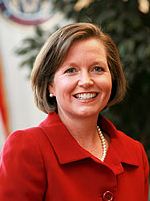 Meredith Attwell Baker, a Republican, was nominated for a seat on the FCC by President Barack Obama on June 25, 2009. Previously, she served as Acting Assistant Secretary of Commerce for Communications and Information and Acting Administrator of the National Telecommunications and Information Administration (NTIA). She was previously Vice President at the firm of Williams Mullen Strategies, where she focused on telecommunications, intellectual property, and international trade issues. Earlier, she held the position of Senior Counsel at Covad Communications from 2000 to 2002, and Director of Congressional Affairs at the Cellular Telecommunications Industry Association (CTIA) from 1998 to 2000.
Meredith Attwell Baker, a Republican, was nominated for a seat on the FCC by President Barack Obama on June 25, 2009. Previously, she served as Acting Assistant Secretary of Commerce for Communications and Information and Acting Administrator of the National Telecommunications and Information Administration (NTIA). She was previously Vice President at the firm of Williams Mullen Strategies, where she focused on telecommunications, intellectual property, and international trade issues. Earlier, she held the position of Senior Counsel at Covad Communications from 2000 to 2002, and Director of Congressional Affairs at the Cellular Telecommunications Industry Association (CTIA) from 1998 to 2000. 




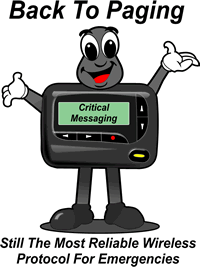



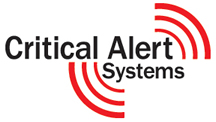
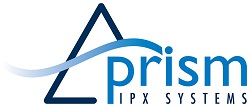





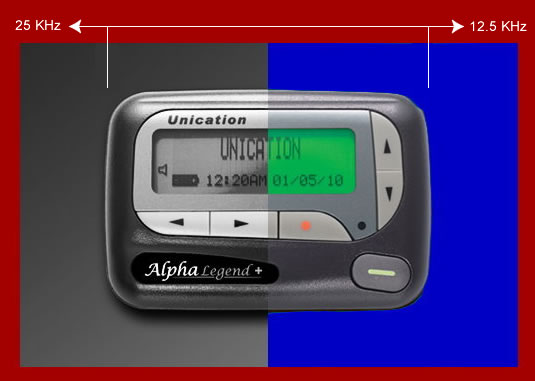





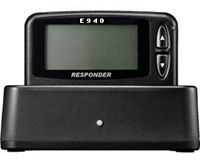

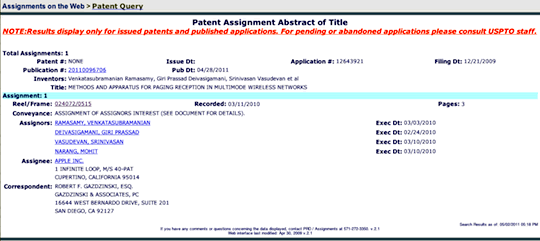

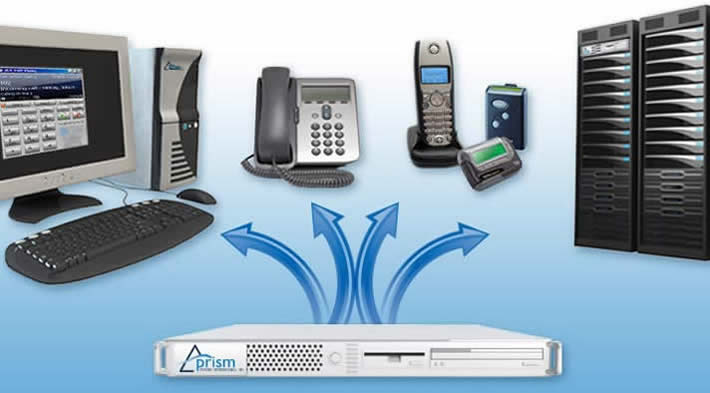

 Multitone Electronics Plc, specialists in defined group wireless communication, celebrates its 80th birthday today. As experts in this field Multitone is a leader in providing resilient messaging systems to hospitals and the Emergency Services in the UK and delivers sophisticated messaging systems to a myriad of customers around the globe.
Multitone Electronics Plc, specialists in defined group wireless communication, celebrates its 80th birthday today. As experts in this field Multitone is a leader in providing resilient messaging systems to hospitals and the Emergency Services in the UK and delivers sophisticated messaging systems to a myriad of customers around the globe.
